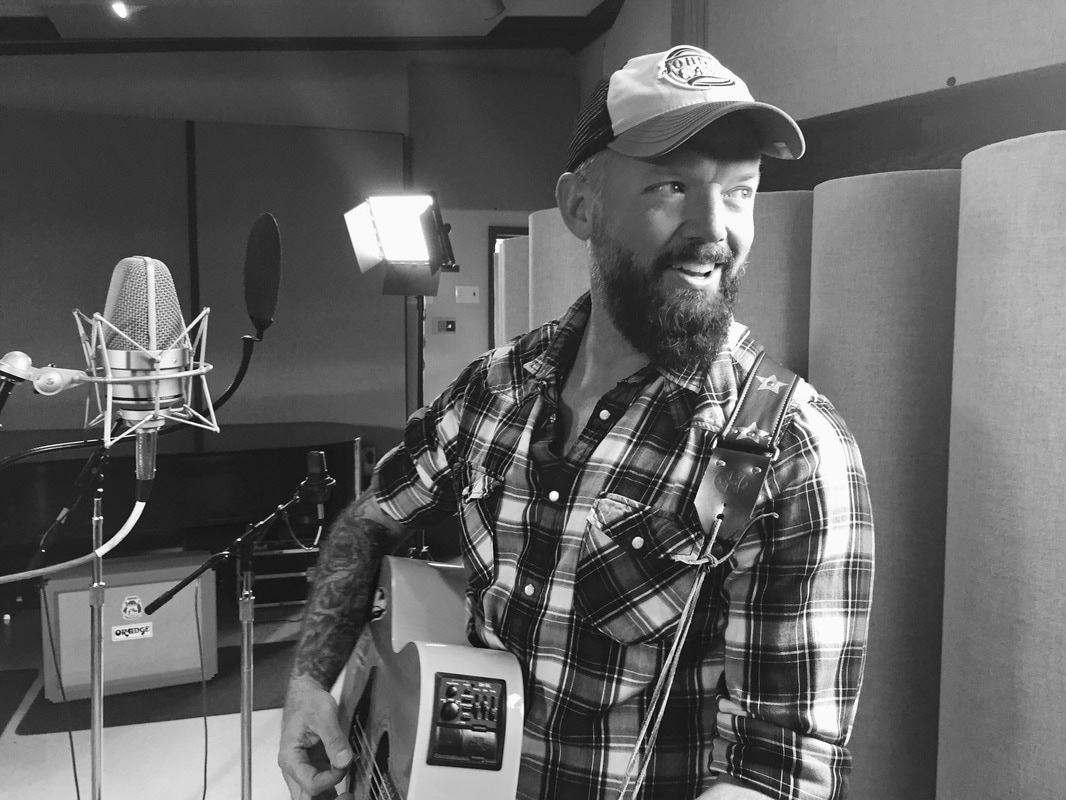|
Don Merckle’s The Ballad of Lincoln Wray is an exploration into his grandparents’ life and their legacy. Far from the barnstorming melees of Merckle’s previous work with The Blacksmiths, The Ballad of Lincoln Wray offers focused reflections on family, love, and personal history. The album’s first cut, “The Ballad of Lincoln Wray”, is a stripped down narrative gilded by the gentle walk of a piano and the christening of a horn section. Merckle’s latest is a mid-summer family reunion—the whiskey is cold and the conversation is so good that no one wants to bicker.
The Ballad of Lincoln Wray will be available on May 5th via Jangly Records. SC: This record is based off of your grandfather serving in WWII. Did the biographical inspiration influence your choice of instrumentation on the record? DM: My grandfather was in WWII but the record is more about his time in the Korean War. Ultimately I just wanted to do something different. I wanted to work with some of these great Jazz musicians in Columbia that I had met and become friends with. I wanted horns, keys and an altogether different vibe than what I was used to and what people were used to hearing me do. It was a unique and really interesting experience and I learned a lot. It was fun. SC: This record is bookended by two versions of “Lincoln Wray”--as well as alternative version of “Cold, Cold War”--can you tell me a little about why you chose that approach? DM: I wrote "The Ballad of Lincoln Wray" a few years ago, anticipating doing this album. I've been performing it solo on acoustic for a while and people who are familiar with the tune will recognize it in that form. I think there was some concern that the full-band treatment wouldn't carry the same weight as the original stripped down version. I like them both but I think there is some truth to that and I wanted to have both on record. "Cold, Cold War" is the same. There is definitely a heaviness to the stripped down version that is palpable. Again, I like both versions but I wanted to preserve the original tone. SC: Writing directly about your family can be hard work. How did you approach it? DM: I did a lot of research. Unfortunately my grandfather died before I could really appreciate his contribution to the world so I was working off of memory at first. I contacted family, Aunts, Uncles and the like to get stories and information. I read history books and memoirs concerning the Korean War. My Grandmother was an equally amazing and courageous woman and I wanted her presence to be felt as well. It was challenging, though. I'm not used to writing this way. So specific and, at times, straight forward. I don't usually come out and just say things. I dance around them. Hell I don't always know what I'm writing about. This was different but, again, I learned a lot. SC: What was your songwriting process like for “Lincoln Wray”? DM: Well, Like I said before, it started with research. I wrote down ideas and played around with rhythms. It took a long time to find the right way to convey the emotion. I wanted to say the right things in the right way. I wanted my family to be proud of it, if they listened. I wanted to be proud of it. I spent a lot of time meticulously putting phrases together and then figuring out if I liked them or not. Like I said before, it was different and I was concerned about getting it just right. SC: How often do you write? Do you keep a regular schedule? Or do you wait for inspiration? DM: I don't keep a regular schedule. I have notebooks full of ideas and fragments of verse. The "notepad" on my phone is filled with ideas and parts of songs. I also have a Music Memo app that I use constantly to record ideas when I can. If I lose my phone, I'm screwed. Isolation works best for me. That's kind of hard to find these days though. I have to seek it out. Put it on the schedule...which is kind of fucked up when you think about it. Sometimes I wish I lived in the woods or maybe a cave. I'd make a pretty good caveman... SC: How does your songwriting community influence your writing? DM: It doesn't. I write for myself, I always have. That's not to disparage anybody, I just don't know any other way to do it. Songwriting is about honesty. Even if you're making up a story, it has to come from an honest place or people won't believe you mean it. Because if you don't believe it the audience sure hell isn't. I've often thought about collaborating. It sure would make things easier but I just haven't been able to work that out. it's hard to do and I envy those that can do it. It's a bit of a lonely process
0 Comments
Leave a Reply. |
The Sound Connector is an online magazine for songwriters. We feature songwriting challenges, monthly interviews, and the opportunity to discover new songwriters. We are interested in all things related to the craft of songwriting. Do you want to be featured on The Sound Connector? Send us your songs!
Categories |

 RSS Feed
RSS Feed